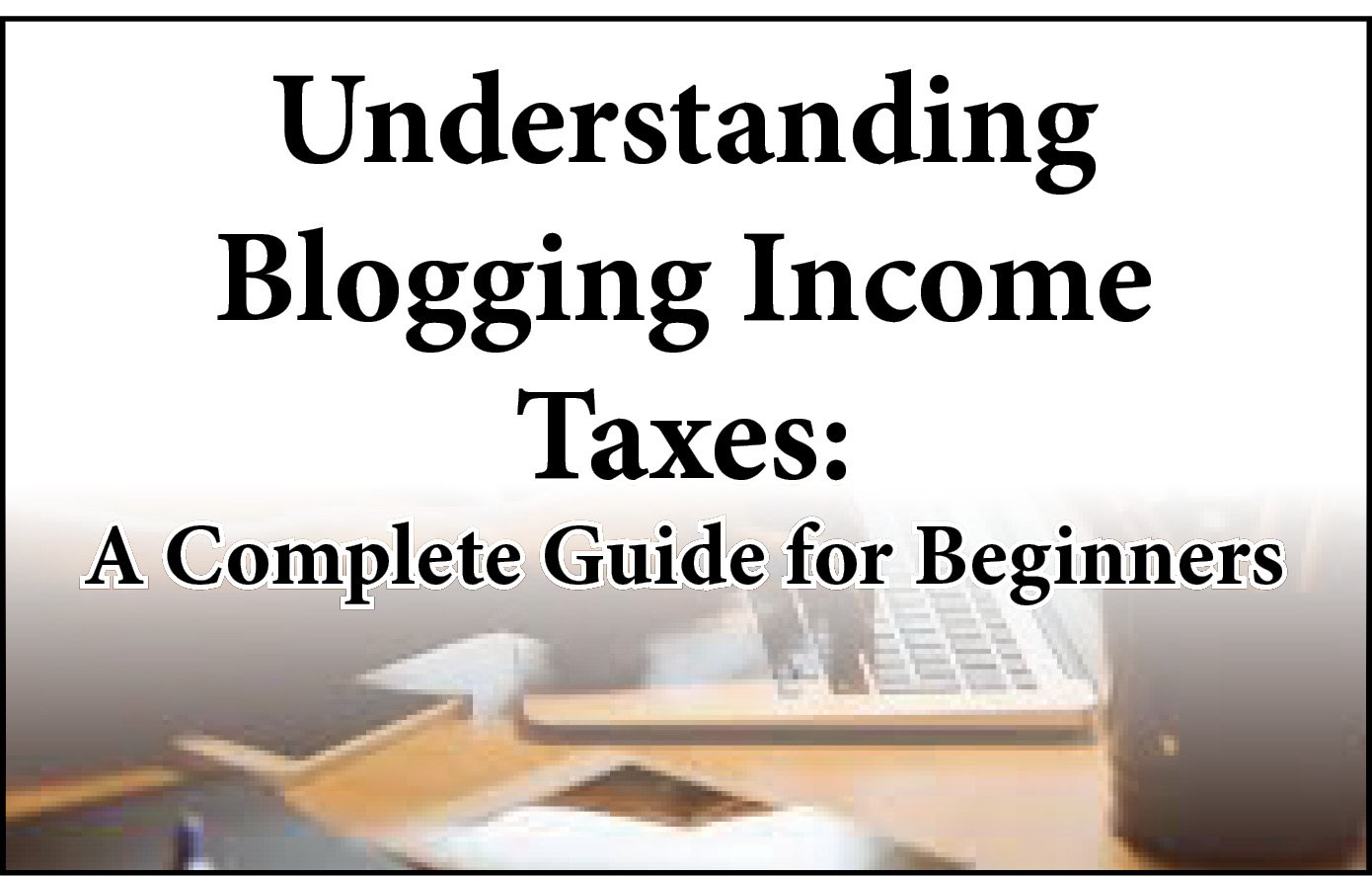Understanding Blogging Income Taxes: A Complete Guide for Beginners
Today, we are discussing the important topic of blogging income taxes. If you earn money from blogging, you may wonder how to handle your taxes. Knowing how to report blogging income is essential to avoid any issues with tax authorities. This guide will explain the basics of how to file taxes for blogging income, including the best practices and common tax deductions bloggers can claim.
Do Bloggers Need to Pay Taxes on Earnings?
Yes, bloggers must pay taxes on their earnings. The money you make from your blog is considered self-employment income. This means you need to report it to the tax authorities, just like any other business income. Whether you earn through ads, sponsorships, or affiliate marketing, it all counts as taxable income.
Which Tax Forms Do Bloggers Need to Fill?
Bloggers in the United States usually need to fill out the IRS Form 1040 for individual income. Along with this, you will likely need Schedule C (Profit or Loss from Business) to report your blogging income. If you earn over a certain amount, you may also need to file Form 1099 if you work with companies or affiliates that pay you directly.
Understanding Blogging Income Taxes: A Complete Guide for Beginners:
How to Report Blogging Income on Taxes
When you file taxes for blogging income, you need to report all the money you earn from your blog. This includes:
- Ad Revenue: Income from ads placed on your blog, such as Google AdSense.
- Sponsored Posts: Payments received from brands for writing content.
- Affiliate Income: Commissions earned from promoting products on your blog.
- Selling Digital Products: Earnings from eBooks, courses, or other digital items.
Tax Deductions Bloggers Can Claim
One of the benefits of blogging as a business is the ability to claim various tax deductions. These deductions help lower the amount of income on which you need to pay taxes. Here are some common tax deductions for bloggers:
| Expense Category | Deductible Items |
|---|---|
| Home Office Expenses | Rent, utilities, internet bills |
| Equipment Costs | Laptops, cameras, software |
| Marketing Costs | Advertising fees, social media promotions |
| Travel Expenses | Trips related to blogging work |
| Professional Services | Fees for accountants or tax software |
These deductions can help reduce your taxable income, saving you money in the long run.
Self-Employment Tax Tips for Bloggers
Bloggers are considered self-employed. This means you are responsible for paying self-employment taxes on your income. Self-employment tax covers Social Security and Medicare taxes. Here are some tips to help manage these taxes:
- Set Aside Money for Taxes: Keep 20-30% of your earnings aside for taxes.
- Quarterly Tax Payments: If you earn a significant amount, make estimated tax payments every quarter to avoid penalties.
- Keep Detailed Records: Track all your income and expenses carefully.
Best Tax Software for Bloggers and Freelancers
Using tax software can make filing your blogging income taxes easier. Some of the best tax software for bloggers includes:
- TurboTax: Easy-to-use software with self-employment features.
- H&R Block: Offers both online filing and expert help.
- TaxAct: Affordable option with good support for self-employed individuals.
These tools help you calculate your taxes and maximize deductions.
Common Tax Mistakes Bloggers Make
Bloggers often make some mistakes when filing taxes. Here are a few common errors and how to avoid them:
- Not Reporting All Income: Some bloggers forget to include all sources of income.
- Missing Deductions: Failing to claim all eligible deductions can cost you money.
- Late Payments: Not paying taxes on time can lead to penalties.
How to Lower Self-Employment Taxes for Bloggers
There are ways to reduce the amount of self-employment tax you pay as a blogger. Here are a few strategies:
- Claim All Business Expenses: Deduct every eligible expense to lower your taxable income.
- Set Up a Retirement Plan: Contributions to retirement plans like a SEP IRA can reduce your taxable income.
- Consider Forming an LLC: An LLC may offer tax benefits depending on your income level.
Legal Requirements for Paying Blogging Income Taxes
It is important to comply with all tax laws when it comes to blogging income. Make sure you:
- Keep Records: Save receipts and invoices for all your expenses.
- Stay Updated: Tax laws can change, so stay informed about the latest rules.
- Seek Professional Help: If you are unsure, consider consulting a tax expert.
